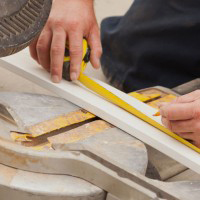
Woodworking hobbies that make money can help you earn extra income
Are there woodworking hobbies that make money? Certainly, if you put in the time and effort. I won’t address the process of starting a woodworking business, something beyond the scope of this article. Instead, let me address a few things that might make you a little money on the side.
Individual hobbies within woodworking are skills like woodcarving, wood turning, wood burning, scroll work, inlay and marquetry, joinery and so on. After the initial investment in woodworking tools, plans, and skill-building videos or books, you can leverage your hobby for its earning potential.
Specialty Woodworking Skills
There are many collectible items and decorative objects that are the product of woodworking. Honing your skills in fabrication and repair of these is a sure way to make money with your hobby. Think about the wood products that speak to you because of their beauty, utilitarian qualities, or investment value: music boxes, clocks, salad bowls and serving utensils. You need to source the parts and materials you need to pursue your expanded hobby, like clock repair parts or wood turning tools.
Let’s talk about that last woodworking skill in the list above. Joinery.
~
Getting Framed
My grandad was a painter and made all of his own picture frames. He also made them for his painting buddies. He scoured hardware stores and lumber yards for unusual moulding, which he turned into frames. He used only a handsaw and a small miter box. And did it all from a tiny apartment.
Panel mouldings and quarter and half mouldings were just some of the pieces he converted into frames for paintings. He had a good eye for design, but mainly it was just experimenting with different materials that got him the best results. Many people were more attracted to his frames than his paintings!
He finished his frames with paint he had on hand or from paint supplied by the artist he was creating a frame for. Given the incredibly high prices frame shops charge for frames, there’s a real market here for a hobbyist to succeed in. And there are kits today that make squaring the frame easier and ones that supply the hardware needed to fasten the corners.
Belonging to a local art society might introduce you to people looking for frames. Local art shows should be investigated for leads. As well as Craigslist if you have that in your community.
Reduce, Reuse, Recycle
Have you priced a stick of walnut lately? Working with brand new wood is extremely expensive. Cutting down the cost of materials is paramount. You can lower your costs with recycled wood, such as pallets or wood pulled from old barns and outbuildings. You’ll have to watch for nails and dirty wood, though, and wood like this will dull your saw blades quickly, as well giving your planer extra work.
Recycled wood is currently in vogue and many fine pieces are produced, such as living room tables and end tables. Mitered boxes are attractive, too, with their aged wood showing off blemishes and mottled colors. Again, though, do you have a market to sell into?
Woodworking, like writing, needs customers and that will take publicity, networking, advertising, and getting your product in front of people. Word of mouth travels slowly if you are selling only a few pieces here and there. One additional idea.
Practical birdhouses. Not frivolous, decorative ones. But birdhouses that can be kept clean and maintained. Ones that are specific to the needs of individual species. There’s a market for owl houses by farmers and vineyard owners. Can you cater to them?
CNC for Thee?
From a simple skill like framing or making boxes, we move to a tool that might be the most expensive item in your shop: a CNC machine. CNC stands for Computer Numerical Control. A CNC router is essentially a robotic carving machine. What these do well is produce letters and artwork on wood quickly, and with a precision even a master craftsman would find hard to match. Instructional videos are essential before you run one.
I have not owned a CNC machine but I am intrigued by their capabilities. The potential for customized signs is unlimited. Basically, if you have an image you can create a sign from it. Do you have a market for small signs? Possibly from customers at trade shows or flea markets? Another question: Can you justify the cost of your equipment?
Woodworking hobbies that make money exist but it’s a matter of finding the right niche market and then promoting your work. The internet makes that easier but you may find yourself spending as much time on promotion as you do with your craft. But at least you will be busy working on something you love and enjoy.
